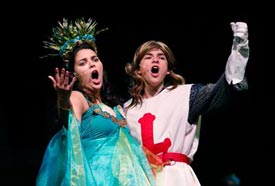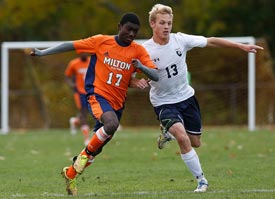How would you describe your role in one sentence?
Simply stated, I support students in their personal development from adolescents to young adults.
In a few more words: I think about a student’s life as a whole. What worlds, especially outside the classroom, are students navigating, and how can we help them? I look at what are we offering; how students are experiencing our program (for example, athletics, activities, service opportunities, conversations with each other and with adults about cultural and social issues). I focus on how we can more intentionally promote students’ becoming confident, self-aware, responsible and resilient young people.
What does an average week look like?
Earlier in the week, days are meeting-intensive. I meet with all those people on campus whose role connects them as leaders with students. For example: house heads, class deans, dining services (Flik), student activities directors, Upper School administrative team, health center counselors and nurses, student head monitors, and teachers in Milton’s affective education program.
The affective ed program is four courses that students take in a required sequence from freshman to senior year: Health, Values, Social Awareness and Senior Transitions. I try to look at what conversations we initiate with students, and how we do that over time (on cyber bullying, for example). We’ve committed to maintaining this discourse, with all students, during their academic day. My goal is to promote our being logical and intentional in sequencing, revisiting and intersecting important topics, to support them in their world.
During the afternoons I meet with kids; they often present proposals and ideas for life at School. I provide direction, and help them move forward. I go to students’ games and activities, and attend culture clubs (Latino, Onyx, Asian Society). I listen while I’m there; it helps me gauge how to support students. On Thursdays, I try to attend the SGA meetings (Self-Governing Association). I listen to what the class representatives are thinking and also promote my own agenda with these student leaders—so they can participate or promote awareness in a certain campaign, for instance. Some afternoons include discipline cases; or working with kids to address incidents or trends that need redirection. My role involves working with the Upper School team on any issue that comes up in students’ lives, or in the life of the School.
Is there something you wish people knew about what you do?
My role is primarily a supportive role. Through participating in students’ lives every day, through developing and continuing my relationships with them, I want them to know and experience me as supportive of their goals, their growth and their well being. I hope that students and parents understand that responding to and managing disciplinary issues as they occur is a role secondary to helping students realize their full growth as young people.
What’s your favorite part of your job?
Watching students do the things that they love to do: play in a game, sing a cappella, give a speech, act, share their writing, start something from scratch, lead a group. Beatnik is probably my favorite event. This is a night when the floor is open; kids volunteer to share themselves, artistically and personally; they put themselves out there. Students love being there, as performers or in the audience.
How would you hope students describe you?
I hope they know me as a support—someone with their best interests in mind, someone who helps them learn how to balance their own needs, those of the community (and any community in their future) and of Milton as an institution.
Should parents know about any particular goals or projects you’ve undertaken?
We’re launching a committee whose focus is reviewing our advising system. Karin Roethke-Kahn (house head, Hathaway) and I are chairing a group of roughly 12 faculty members. We will look at how, when, and how effectively we advise students through our current structure, at defining the role of advisor more clearly, and at providing professional growth for our advisors that empowers them to be effective. As part of our charge we’ll look at optimal communication between advisors and parents that acknowledges and benefits from the perspectives and expertise of both sides of the conversations with kids. On the horizon, we are also planning to look closely at our discipline system, and to think about our policies, and our responses, and whether they’re effective in helping students learn in the way we want them to learn.


